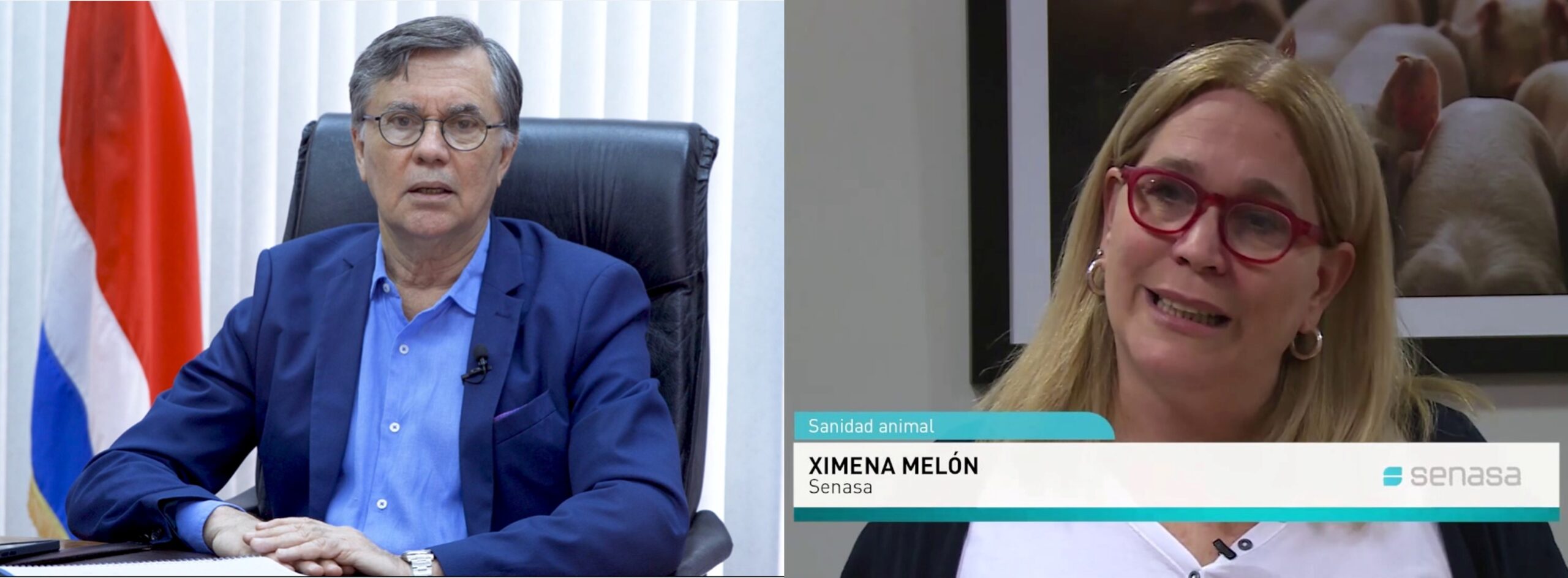During the PVC’s event to mark the close of the 2021 fiscal year, staff and work teams from both institutions agreed to continue pursuing a joint work agenda in the face of the constant challenges arising in animal health and amidst a scenario of mounting risks due to climate change.

San Jose, 7 February 2022 (IICA). The Permanent Veterinary Committee (PVC) of the Southern Cone and the Inter-American Institute for Cooperation on Agriculture (IICA) have strengthened their strategic partnership to enhance animal production sustainability in the region.
During the PVC’s event to mark the close of the 2021 fiscal year, staff and work teams from both institutions agreed to continue pursuing a joint work agenda in the face of the constant challenges arising in animal health and amidst a scenario of mounting risks due to climate change.
The PVC, which was established in 2003, is an institution whose membership includes Argentina, Bolivia, Brazil, Chile, Paraguay and Uruguay. Its mission is to work jointly for the benefit of animal health and to address its impact on trade, public health and the environment.
IICA has supported the PVC since its creation, by way of an agreement that draws on the complementarity and synergy of both institutions. The agreement came into effect in 2005 and was renewed in 2020. The emphasis in recent years has been work on strategic issues of regional scope.
The meeting—that was held virtually—provided an overview of the PVC’s activities in 2021, in the context of its 2021-2025 Strategic Plan, and presented the financial situation of the institution. The event also marked the beginning of the term of new President pro tempore, Ximena Melón, who is the National Director of Animal Health of the Republic of Argentina. Melón stressed the importance of the presence and support of the Director General of IICA, Manuel Otero, as well as his organization’s team of professionals and technical staff.
The PVC member countries are prominent players in the production of protein of animal origin. Their dominance is not limited to the Americas, but extends globally. The individual countries and the region, in particular, are leaders in the exportable supply of beef, pork and poultry.
The PVC’s 2021-2025 strategic plan is based on four broad pillars: institutional consolidation, a regional animal health strategy, a regional food safety and public health strategy, harmonization of trade facilitation mechanisms and regional positioning with respect to international regulations.
Melón maintained that, “We will continue working together to overcome and respond to cross-border diseases. Our strategic partnership is very important because the region boasts an animal production sector of tremendous economic and social importance, as our countries have a longstanding track record in beef production and nowadays are demonstrating significant growth in pork and poultry production”.
“We need to continue producing animal protein sustainably”, she said, “to preserve our economies and the environment. Exotic diseases, such as the African swine fever, are our greatest challenge today. It is imperative that we harmonize guidelines and establish common criteria to tackle this problem because the impact on one country could extend to the others”.
Melón assumes leadership of the PCV, replacing Uruguay’s Diego de Freitas, who stressed the importance of IICA’s support to the institution that is working to advance animal health in the Mercosur countries. Also attending the meeting were authorities heading the Animal Health divisions in their respective countries: Robin Cuellar of Bolivia; Geraldo M. de Moraes of Brazil; Oscar Videla of Chile and José Carlos Martín of Paraguay.
Manuel Otero pledged IICA’s efforts to work with the PVC to advance the One Health Concept, which maintains that there can be no human health without animal health, and both are impossible if the environment is unhealthy, damaged or not sustainable.
“We are concerned about the climate crisis and its impact on pests and diseases. Animal health is an absolutely dynamic area, with constant and changing challenges, all of which highlights the importance of the PVC, as well as the role of technical cooperation and public-private efforts”, Otero said.
The IICA Director General recalled the importance of the Southern Cone countries to global animal protein production. “We receive a great deal of criticism, the vast majority of it unfounded. IICA, with the support of the ministers of the region, is prepared to defend the importance of our countries’ animal production systems, even from a cultural standpoint, and to shift from a defensive to an offensive posture”, he remarked.
Otero pointed out that IICA had signed a monumental agreement with the Green Climate Fund, which has accredited the hemispheric rural development organization to implement projects funded by its loan portfolio. It is also establishing a fund focusing on the issues of sustainable livestock production and animal health.
More information:
Institutional Communication Division
comunicacion.institucional@iica.int










